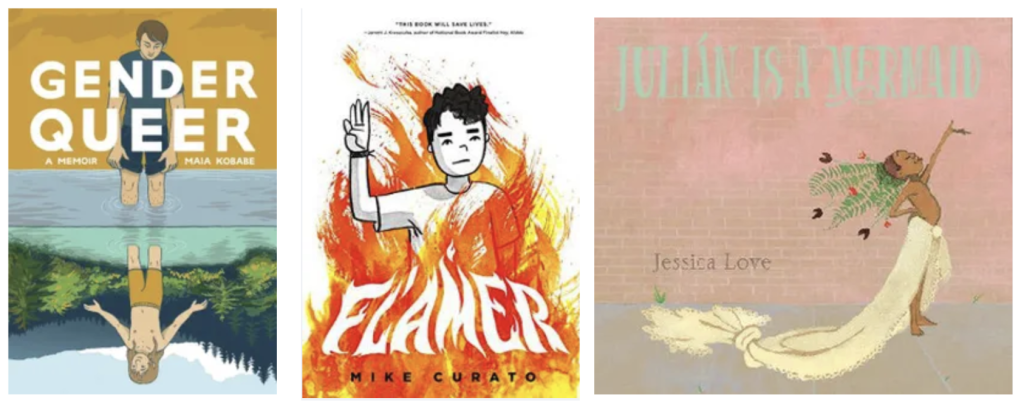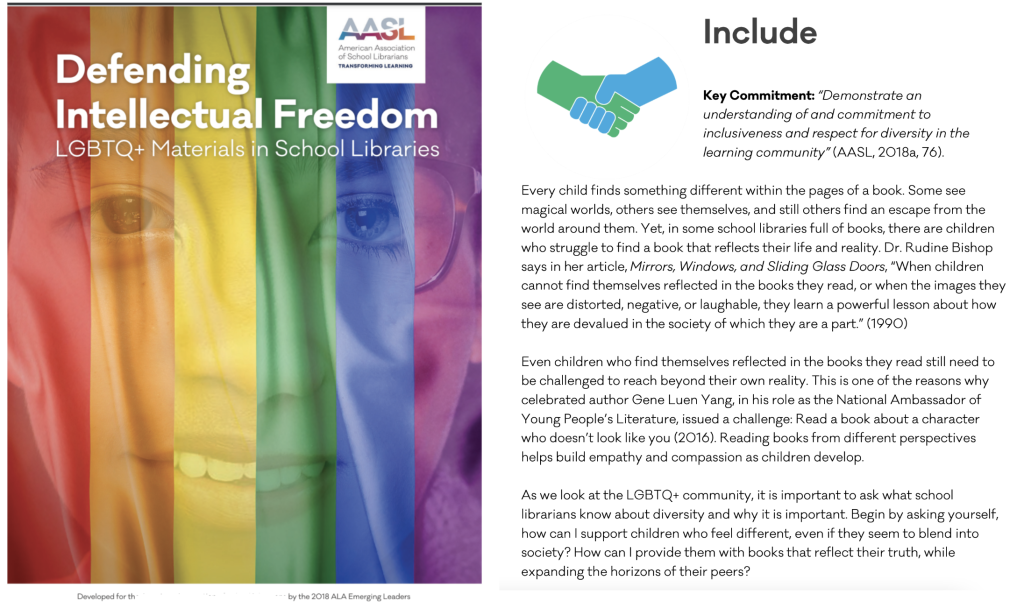
Please Follow us on Gab, Minds, Telegram, Rumble, Gettr, Truth Social, Twitter
Parental rights group Darien Parents highlighted a potential policy violation in their district with respect to controversial library books.
The group alleged that if students access ebooks through the Darien Public Schools WiFi network or through school-owned computers, they may be in direct violation of the District's internet policy.
The Parents' note explained how Darien Public School's Policy Regarding Student Use of the District's Computer Systems and Internet Safety (Series 5000-Student Policy 5300) definitions for "harmful to minors" and "prohibited sexual act" should presumably apply to the sexually-explicit content that might be contained in ebooks such as Gender Queer, Flamer, and others.
Darien Parents highlighted the book Gender Queer which "depicts oral sex with a strap on prosthetic penis as well as a discussion between two siblings—along with imagery—of tasting 'vagina slime'" and wondered if this type of content, if accessed in electronic form on the DPS network, could be in violation of the internet safety policy which was last updated in November 2020.
The Parents also noticed that the word "cartoon" was curiously crossed out in the "child pornography" section of the policy, and wondered if the edit was intentional or made to create a potential loophole to allow inappropriate graphic novels to remain on the shelves.
Darien Superintendent Dr. Alan Addley responded to the group's concerns.
For starters, he said the strike through the word "cartoon" in the internet policy was not intentional. The Board approved the policy in 2020 with “cartoon” included in the internet safety policy.
He also does not believe that the content in question meets the criteria for being considered "obscene" and therefore does not violate any school policy. While he said the Board of Education is continuing to review its policy on the review of instructional materials, he noted “I respect the concerns of parents about these difficult topics. While clearly not all books are for all students, it is important that all students are represented in the library collection.” The books in question can still be accessed through the high school library.
Three books have been recently challenged in Darien Public Schools—Flamer, Gender Queer and Julian Is A Mermaid.
All of the books survived the challenges and remain on the shelves today.

Superintendents, librarians and Boards of Education all across the country have used concepts like "representation" along with "diversity, equity and inclusion" to justify the presence of sexually-explicit content in school libraries, emphasizing the importance making sure every child can "be seen in books".
School officials often look to the Marxist-led American Library Association (ALA) for direction on how to respond to book challenges. The guidance is pretty much to push back against all challenges.
ALA even developed a guide in 2018 on "defending intellectual freedom" for LGBTQ+ materials in school libraries to ensure "equity and access" for all learners calling "intellectual freedom" a "right". Librarians are then told it's their responsibility to protect the rights of all learners, and to prevent anyone from controlling access to books. Even if the books are age-inappropriate and/or sexually-explicit.

Enter the recently-launched World Library Association (WLA), started by library watchdog Dan Kleinman. His group guides communities towards common sense, community standards, and importantly, the law. For example, the law says pervasively vulgar and educationally unsuitable materials may be pulled from school libraries immediately, including books like Flamer, Gender Queer, and Julian is a Mermaid.
Furthermore, WLA understands the difference between the pervasively vulgar standard from the 1982 SCOTUS case of Pico that applies to school libraries, and the obscenity standard from the 1973 SCOTUS case of Miller, a case that does not apply at all to school libraries.
So when a school board determines a book is not obscene as a whole and should be returned to the shelf, they are basing that decision on a case that actually doesn’t apply, and ignoring a case that does apply, just so that librarians following ALA policy can feel they have achieved a victory.
Kleinman says that, "WLA would guide communities to follow the law, not the political dictates of some out-of-state organization of librarians who say anything goes and who flood schools with pervasively vulgar material like Flamer and Gender Queer and educationally unsuitable material like Julian is a Mermaid. So that’s why the materials have been reviewed and kept on the shelves, because the entire process has been created and set up by the American Library Association using standards ALA wants people to think apply but really don’t."
Furthermore, Kleinman says that the ALA, "does not have the power to force a school board to do as it wishes, but it does have the power to convince the school board to act as ALA wishes, and sure enough that’s what has happened here."
"Because in reality, common sense, community standards, and the law would have removed those books from the school library, but here we are, school children remain being sexualized even after school board review," Kleinman said.

